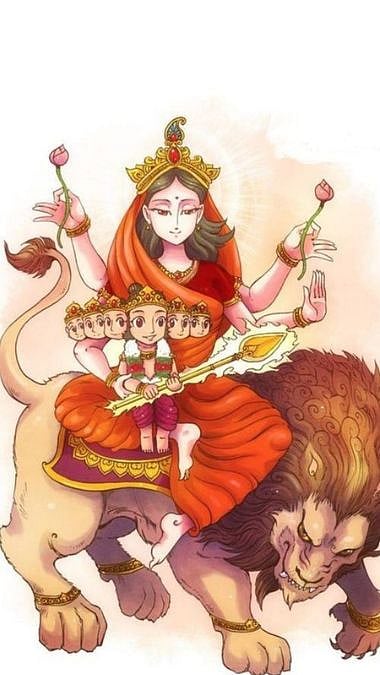New Delhi: Prime Minister Narendra Modi on Monday paid tribute to Maa Durga on the occasion of Navratri with a garba that he wrote.
In a post on X, PM Modi said he wrote the garba as a tribute to Maa Durga's power and grace.
"It is the auspicious time of Navratri and people are celebrating in different ways, united by their devotion to Maa Durga. In this spirit of reverence and joy, here is #AavatiKalay, a Garba I wrote as a tribute to Her power and grace. May Her blessings always remain upon us," the Prime Minister said.
PM Modi Extends His Gratitude To Purva Mantri
PM Modi also thanked Purva Mantri for singing the Garba.
"I thank Purva Mantri, a talented upcoming singer, for singing this Garba and presenting such a melodious rendition of it," he said on X.
PM Modi Extends Greetings On The Occasion Of Navratri
Earlier on October 3, Prime Minister Narendra Modi extended greetings to fellow Indians on the first day of Navratri, wishing everyone an "auspicious" festival.
"I wish all my countrymen a very Happy Navratri. May this holy festival dedicated to Shakti Vandana prove to be auspicious for everyone. Jai Mata Di!" PM Modi wrote in a post on X.
"On the first day of Navratri, I pray to Maa Shailputri with folded hands! May everyone be blessed by her grace. This prayer to the Goddess is for all of you," he wrote on X.
About The Festival Of Navratri
Navratri, which means 'nine nights' in Sanskrit, is dedicated to the worship of Goddess Durga and her nine avatars, known as Navdurga. The festival is celebrated with great devotion across India, with rituals and prayers honouring the goddess in her various forms.
Hindus observe four Navratris throughout the year, but only two--Chaitra Navratri and Shardiya Navratri--are widely celebrated, as they coincide with the changing of the seasons.
In India, Navratri is celebrated in various ways. In North India, particularly in Uttar Pradesh, Uttarakhand, Bihar, and Madhya Pradesh, the Ramlila, a dramatic re-enactment of scenes from the Ramayana, is organised.
The festival concludes with Vijayadashami, marked by the burning of King Ravana's effigies.












